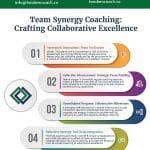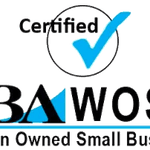Imagine the future of your organization resting on every decision you make. As a CEO, the weight of that responsibility is undeniable. But what if you could consistently sharpen the skills that define great leadership—strategic thinking, clear communication, and self-awareness?
By investing in the right CEO training and development program – and setting the right leadership development goals – you equip yourself with the tools to stay ahead of industry trends and lead with confidence. There’s a reason why organizations globally spend some $60billion on leadership development programs annually.
In this guide, we’ll explore how enhancing your leadership capabilities can empower you and your organization to grow.
TL;DR – Best CEO Training and Development
Here’s a look at top CEO development programs:
- Tandem Coaching CEO Development Program: A tailored development program that starts and ends with a 360-degree assessment to track progress and ensure measurable leadership development.
- Berkeley CEO Program: Focuses on real-world leadership challenges with personalized feedback.
- Wharton Global C-Suite Program: Combines global business insights and flexible learning with faculty support.
- Oxford Executive Leadership Programme: Short, intensive leadership training with a strategic focus.
- Yale Accelerated Management Program: Online, flexible, ideal for those needing to enhance decision-making and management skills.
- MIT Executive Program in General Management: Emphasizes technology-driven leadership through practical, action-based learning.
- Harvard Advanced Management Program: Comprehensive program for senior executives, offering extensive networking opportunities.
- Columbia CEO Program: Balanced theoretical and hands-on leadership training suitable for CEOs seeking practical development.
We’ll dive into these programs in more detail below. If you’re ready to take your leadership to the next level, reach out to us today!

What Are the Risks of Neglecting CEO Development?
Neglecting CEO development can have severe consequences for both the individual and the organization. CEOs may struggle to adapt to changes in their industry or marketplace without continuous learning. This can lead to stagnation, poor decision-making, and a lack of innovation.
Additionally, if a CEO doesn’t focus on developing their leadership skills, it can create a ripple effect throughout the organization, lowering morale and decreasing employee engagement. Over time, these issues can erode trust in leadership and negatively impact the company’s bottom line.

Benefits of Investing in CEO Training and Development
Investing in CEO development enhances leadership skills, directly impacting the entire organization’s success.
This helps CEOs:
- Make better decisions
- Lead more effectively
- Inspire their teams to perform at their best
Benefits of leadership development programs also include access to mentors, networking opportunities, and insights into the latest trends and leadership development strategies.

Key Skills CEOs Need to Develop
Effective CEOs constantly work on their skills to stay sharp. Here are a few key areas of focus:
- Strategic Thinking: Understanding how to set long-term goals and align resources with company objectives is crucial.
- Emotional Intelligence: CEOs must manage their emotions and those of their team members to create a positive and productive work environment.
- Communication: Clear, consistent communication is vital for motivating your team and ensuring everyone is aligned with company goals.
- Adaptability: The ability to pivot and adjust plans when faced with new challenges or opportunities is a must in today’s fast-changing world.
- Decision-Making: Strong decision-making skills ensure you’re making informed, thoughtful choices that benefit your organization.

8 Best CEO Development Programs
Choosing the right CEO development program can make a huge difference in how you lead and grow your organization. Here’s a review of top-rated options to meet various leadership needs.
1. Tandem Coaching CEO Development Program
This nine-month program starts and ends with a 360-degree assessment so leaders can see the real progress they’ve made. The program is tailored to the individual’s needs and combines one-on-one coaching by MCC-level coaches and Mastermind group sessions into a highly effective program that identifies leadership skill gaps and then fills them.
The Mastermind sessions also ensure the participants build their network of fellow CEOs.
- Pros: Very targeted MCC-level coaching and measurable progress.
- Cons: The program requires active CEO involvement throughout the process (though this opens the door for a highly personalized experience tailored to the specific leadership needs).
- Best For: CEOs who are keen to make real progress on specific leadership skills.
Contact us now to book a free consultation to start your CEO development journey.
2. Berkeley CEO Program
This year-long program is designed to provide real-world leadership experience through interactive live sessions, executive coaching solutions, and a personal case project. Participants engage with complex leadership challenges while receiving personalized feedback. Graduates also gain access to Berkeley’s alumni network.
- Pros: Focus on practical, hands-on learning and strong alumni benefits.
- Cons: High cost and time commitment.
- Best For: CEOs who want to apply lessons directly to real leadership challenges.
3. Wharton Global C-Suite Program
The Wharton Global C-Suite Program spans 9 to 12 months. It is mostly online, offering global business insights with a focus on strategic leadership. Participants benefit from a curriculum designed to meet the needs of top executives. They get to meet in person at an on-campus graduation event.
- Pros: Global business focus and access to Wharton faculty.
- Cons: Online components may not suit all learning styles.
- Best For: CEOs seeking a global perspective and flexible learning.
4. Oxford Executive Leadership Programme
This 8-week program offers self-paced online learning focused on leadership dynamics, strategic decision-making, and stakeholder management. Participants engage in discussions and case studies to sharpen their leadership skills in a short time frame.
- Pros: Short duration and strategic focus at a lower cost.
- Cons: Limited networking opportunities due to the short program length.
- Best For: Busy CEOs looking for a quick but comprehensive leadership boost.

5. Yale Accelerated Management Program
Yale’s 8-week program focuses on enhancing managerial skills, particularly in strategic decision-making and financial acumen. This entirely online program is designed for professionals who need flexibility but want a solid foundation in leadership.
- Pros: Affordable and highly flexible.
- Cons: Limited in-person interaction.
- Best For: Younger leaders and CEOs seeking to strengthen decision-making skills while maintaining a busy schedule.
6. MIT Executive Program in General Management
This 7-month blended program from MIT covers key management skills, focusing on technology-driven leadership. Through action learning projects and interactive classes, participants tackle challenges unique to the digital age.
- Pros: Emphasis on technology and innovation with practical projects.
- Cons: High cost and time commitment.
- Best For: CEOs leading in fast-paced, technology-driven industries.
7. Harvard Business School Advanced Management Program
Harvard’s Advanced Management Program is one of the most comprehensive options, blending in-person and virtual sessions over three months. The focus is on transforming executives into high-level leaders who can drive meaningful organizational change.
- Pros: Prestigious faculty and extensive network-building opportunities.
- Cons: Extremely high cost and time-intensive.
- Best For: Senior executives looking for transformative leadership growth.
8. Columbia CEO Program
Columbia’s blended 8 to 10-month program combines academic aspects with practical application to develop strategic leadership skills. The program emphasizes leadership through structured academic content and hands-on activities.
- Pros: Balance of theory and practice with a manageable time frame.
- Cons: Limited focus on global leadership perspectives.
- Best For: CEOs looking for in-depth leadership training with practical elements.

Challenges in CEO Development
Time is often the biggest obstacle for CEOs who juggle numerous responsibilities. Finding the right program that fits both their schedule and specific development needs can be tricky.
Another challenge is recognizing areas for growth and the most effective leadership development activities for them. Many CEOs may struggle with self-awareness, which can delay personal and professional development.
Finally, navigating the sea of available programs can be overwhelming, making it challenging to identify which one will provide the most value.

Why Mentorship is Important in CEO Development
As Bo Sanchez said so aptly: “Getting a mentor is a shortcut to success.”
Here are six more reasons why mentoring matters:
1. Enhanced Decision-Making
A mentor can help you navigate tough decisions by sharing their own experiences. They offer fresh perspectives and help you think through your options more critically.
2. Increased Self-Awareness
Mentors encourage self-reflection, helping you identify personal strengths and areas that need improvement. This self-awareness allows you to make better decisions and become a more effective leader.
3. Support and Guidance
Leading a company can be isolating, but a mentor gives you a sounding board. They provide emotional support and practical advice, helping you manage the pressures of the role.
4. Improved Performance and Job Satisfaction
CEOs who work with mentors often see improvements in both job satisfaction and performance. You’ll feel more confident in your role with a mentor’s guidance.
5. Networking Opportunities
Mentors can also connect you with valuable people in their network. These relationships can lead to new collaborations, partnerships, or business opportunities.
6. Legacy Building
By engaging in mentorship, you contribute to a culture of learning within your organization. This focus on personal growth helps to develop future leaders and ensures long-term success for your company.

How to Select the Right CEO Development Program
Choosing the right CEO development program starts with a clear understanding of your needs and goals. Then, consider whether you’d benefit more from one-on-one coaching, group-based learning, or a mix of both.
To assess the credibility of the program and its coaches, look for reviews or testimonials from past participants and check the program’s track record of success.
Finally, ensure that the program fits your schedule and budget without compromising the quality of coaching.

Frequently Asked Questions (FAQs)
Here are some questions we frequently get about CEO leadership development:
How Often Should CEOs Participate in Coaching Programs?
The frequency of participation depends on the individual’s needs and the pace of change within their industry. However, engaging in leadership development at least once a year can help CEOs stay ahead of trends and refine their skills.
How Should New CEOs Approach Leadership Development?
New CEOs should focus on building a strong foundation in key leadership areas such as strategic thinking, communication, and emotional intelligence. Seeking mentorship and investing in a coaching program tailored to first-time CEOs is a great start.
What Are the Signs That a CEO Needs Development?
Common signs include difficulty making decisions, communication breakdowns, low team morale, and an inability to adapt to change.
Conclusion
Investing in the right CEO development program gives you the tools, skills, and support you need to lead effectively in today’s competitive business environment. Whether through one-on-one coaching, peer-based learning, or mentorship, focusing on your leadership development will benefit you for years to come.
Contact us now to book a free consultation. We will guide you through the process of setting up a CEO development program for you.


















